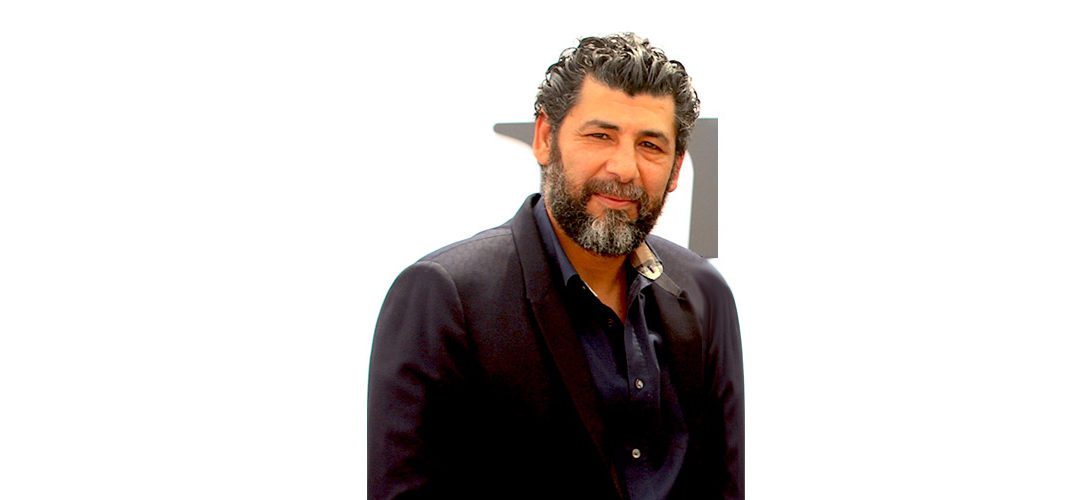The following interview features in the new report from Ampere Analysis—Where next for kids’ TV: Predicting the future of children’s content. Download the full exclusive report here…
MBC Group (Middle East Broadcasting Center) is the largest and leading private media corporation and first private free-to-air satellite broadcaster in the Middle East & North Africa region.
It was launched in London in 1991 and later moved its headquarters to Dubai, UAE in 2002, with major offices in Riyadh, Beirut, Cairo and Amman. To date, MBC GROUP includes twenty TV channels that span a wide spectrum of programming and content, as well as FM radio stations, VoD Services, Gaming Apps, a content drama production company, robust CSR initiatives, as well as numerous significant online platforms and digital streams.
Guy Bisson: What changes have you seen in recent years in the sort of kids’ content?
Fadel Zahreddine: Anything related to kids and teens environment seems to be the in-thing at present worldwide, with various players internationally, including the BBC who are planning to compete in the global media market in that space, which further reinforces that reality.
However, what’s key in my view are a few key changes that have sprung up, namely the notion of safety for parents in regards to the type of content kids are watching. Likewise, there’s the rise of OTT that presents a new modus operandi of the traditional way of subscriptions, as well as the notion of unboxing that’s gained popularity over a short period of time, and finally the change to the whole viewing ecosystem away from linear TV that we’ve witnessed of late. The latter is testimony to endorsing a change in the diversification of kids’ trans-media content, as well as aggregating more platforms to watch that very same content.
With the above in mind, and way ahead of the game, MBC GROUP had in effect instilled a dedicated ‘Kids Hub’ that answers to identifying key components of that demographic, and we’re intently looking at what will and can influence both our TV and Digital grids, as well as sound investments towards this crucial segment for the future.
> Are there any characteristics of kids’ content made for the Middle East market, and if so, what are the reasons for the differences?
There are obvious differences, but that echoes more the cultural and socio-economic disparities rather than a common denominator with the misconception of what works for kids abroad is the same for kids in the Middle East.
The main reason is that Arabic content – and I’ll be very candid – is not up to par in comparison to abroad, simply because there’s no sound ROI for corporations to invest in producing content, and ultimately see little return. So, the ‘import’ of westernized content seems to have been the standard. However, as OTT is thriving, we will in turn witness a gradual boom in proper content creation in the region. That being said, and especially with kids’ content, there are certain strong IPs that have strong international appeal, while others don’t. We tend to think that what is produced in the U.S seems to have a more universal appeal than the rest, and that in part may be true, but I’ll even venture to say that even locally-produced content may not at times work locally, due to the diversity within the region; its dialects, customs and protocols. You see, the biggest fallacy is cluttering everything under one theme being the Middle East! That is not one country, but no less than twenty-two countries collaged in your question!
> Do you think the way children’s stories are being told has changed because of the new device environment or the emergence of platforms like YouTube?
The importance is that stories continue to be told, regardless to which platforms! Our job is incomplete if we do not create the means for which children can access their content through any of their desired ways and platforms. That’s what’s exciting in that there are no norms anymore, but instead, the creation of more choices.
Worldwide figures attest to the fact that young audiences are shifting away from ‘traditional viewing habits’ and towards on-demand viewing, and what’s important is that families (and parents in particular) appreciate the engaging edutainment angle to what storytelling may present to their young ones, unlike the unboxing model which is a hard sell, and that obviously parents would not appreciate. So, the way children’s stories are being told has definitely changed, given that the safety part is essential in parents’ choices of what their kids watch, as well as the diversity of content choices through ancillary content and alternative platforms. In all, it’s about the validation of on-going engagement that is key here.
> What is your approach to using kids’ content on YouTube and other social platforms?
We’re looking at aggressive strategies forward to be implemented in what’s safe, entertaining, educational and fun. And that goes in line with our existing channels such as MBC3, and SVoD channels that have permitted us to become more discerning and thorough in both our approach and the responsibility we carry in bringing the best of kids’ entertainment forward, locally and regionally.
However, rather than simply identify the positives, the concern over the negative effects of technology are more predominant as Gen Zers become increasingly mobile-oriented, so the main identifier for us forging ahead, is that our brands are centred around ‘controlled’ safe content. And that’s why GOBOZ, (our new SVoD to be launched very soon) will precisely fulfil this crucial objective.
> Have you seen any innovative or new ways of financing or distributing kids content?
At MBC GROUP, and for the last 26-years, we have been spearheading quality through hard but studied choices, and with that type of responsibility as the most respected and trusted media conglomerate in the region comes an expectancy from our millions of viewers, as well as a clear internal strategy to always innovate, create and assess accordingly. Many players worldwide have come up with innovative ways that satisfy the market they serve, and for us, it’s essential moving forward that we keep a listening ear to what our viewers; and essentially kids – through their parents – want and need.
With that in mind, we’re launching GOBOZ, which is a parent-controlled kids video entertainment SVoD service available across all major platforms: (Web, IoS, Android) in Arabic, English and French. GOBOZ will feature an extensive library of the best curated, animated and live action films and series, responsibly selected and rated, in order to protect kids from harmful content, and of course, without forgoing quality, cultural affinity and the vast potential for learning. GOBOZ is in fact the answer to extending our distribution platforms.
I personally believe in the future of the MENA region in funding and co-funding good content, and we are committed to that cause. That’s why we invite global brands to take note, correspond, talk, and create strategic collaborations for the betterment of the region when it comes to content creation, since reach hasn’t really changed, but engagement undoubtedly has.
>Has SVoD had any particular impact on kids’ content and the way it is made or financed?
It’s still in its early stages to have a tangible impact that may sway or influence the big studios and broadcasters to produce case-specific content, rather than carry forward what’s readily available, and the best of what’s at offer worldwide. The ulterior impact SVoD has had is the longevity of programs and series past their first runs, convenience of choice, and the far-reaching audiences they can engage.
In effect, case-specific and exclusive content will be more readily available exclusively on SVoD as the offerings intensify and demand rises with more amenities starting with safe choices, premium alternatives, easier navigation, and even personalized individual profiles. Because of changes in the family roles and specifically with kids, recent decades have seen sharp increases in kids’ direct influence on spending, and that will be inclusive of parents’ purchases to their choices on SVoD!
> If you had to predict what sort of kids’ content will be selling in five years’ time, what would say?
Kids are much more in-tuned consumers than ever before, and the ecosystem around them is ever-changing as a consequence. What does all this mean us? It means that what worked in the past will not necessarily work in the near future, and what may work today will need to be up to par to what kids expect, otherwise they’ll switch off the moment they’re not captivated. That’s one tough customer!
Kids content in the future should allow the kids avatars to be part of the narrative, and the avatar itself grows within the story, as the storyline develops as the kid gets older. That in itself is an immersive, interconnected parallel life that ultimately translates into honing kids’ knowledge, skills, intelligence, and all the meanwhile, going through an adventurous journey!
As a result, kids are a core segment we are focusing on at MBC GROUP. Our principal drive is to serve this restless demographic with the best of what’s available in this new ecosystem. In tandem, we’ll continue to explore and experiment at the idea stage with new concepts, new technologies, development journeys, and ultimately serve content that’s safe-centric, quality-based, and readily available that ultimately translates into increased and sustained engagement. That’s not a predication, but more so, an effective work-plan!




